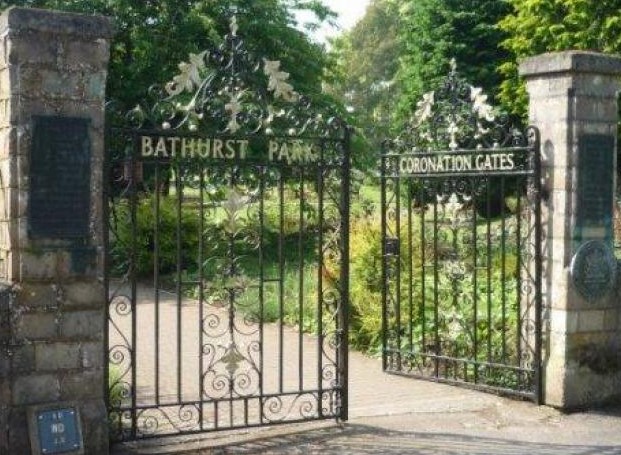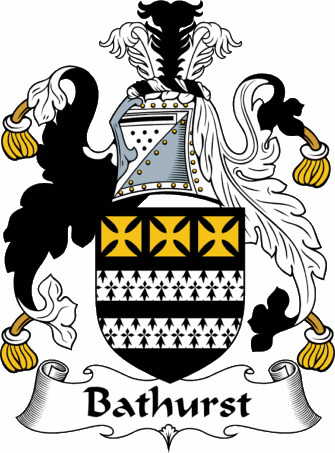Lydney Town Council has attempted to ban a Black Lives Matter event arranged to take place in Bathurst Park, Lydney at 2 pm – 4 pm Saturday 20 June. Forest of Dean Black Lives Matter has issued a statement on their Facebook Page which includes the following:
We cannot continue to allow this oppression in our society; the primary purpose of this event to begin with was to challenge this and to encourage change, it is sad that you have prevented from us doing so. We do not wish to, and we will not have our voices silenced again.
Consequently, the police have informed Lydney Town Council that their actions were illegal under Article 11 of the Human Rights Act and now the event will be going ahead as planned. Zac Arnold has called for the resignation of the Mayor and Deputy Mayor.
Bathurst Park is named after the Bathurst family who own the nearby Lydney Park Estate. Sir Benjamin Bathurst (1635 – 1704) was Deputy Governor of the Leeward Islands in the late seventeenth century and a heavy investor in the Royal African Company and Governor of the East India company. As a result, he made his fortune out of the slave trade and the plundering of India. He has been described by his present family “as a kindly and generous gentleman”.
In 1695, Sir Benjamin Bathurst purchased the Cirencester Park Estate with the proceeds of the slave trade and the plundering of India as a gift for his eldest son, Allen, who became the 1st Earl Bathurst. The present Lady Bathurst of Cirencester Park is married to Allen Bathurst, 9th Earl Bathurst who is a direct descendent of Sir Benjamin Bathurst. Lady Bathurst was High Sheriff OF Gloucestershire 2016 2017 and her property portfolio includes properties in the Forest of Dean.
In 1719, Lydney Park Estate was bought by Benjamin Bathurst, the son of Sir Benjamin Bathurst and brother of Allen, with proceeds from the slave trade and the plundering of India and his descendants have owned it ever since. Benjamin Bathurst son in law, Charles Bragge Bathurst (1754 – 1831), served as a Tory MP for Bristol from 1796 to 1812 and, as a member of the Merchant Venturers and the mercantile elite, was a strong supporter of the slave trade. He was the great grandfather of Charles Bathurst 1st Viscount Bledisloe’s (1867 – 1958), owner of Norchard Colliery and Lydney Park Estate whose descendants still live there.
Bristol Radical History Group fully supports this event taking place as planned. However, in light of the recent events in Bristol we respectively recommend that, just like the case of Colston, the history the British ruling class’s involvement in the slave trade and the suffering they caused to Black people cannot be brushed under the carpet. Consequently, we would suggest anyone attending the event should be informed of the historical links between the Bathurst family, their Estates in Gloucestershire their wealth and the slave trade and the plundering of India.
Warren James


Steven
A few months after Bathurst, MP for Bristol, came Edward Protheroe, MP for Bristol (1812-20), who used his wealth, much derived from slavery, to become ‘father of the Forest iron and coal trade’ (Monmouthshire Beacon, 1851) .
Timothy Kendall
Was the third Earl of Bathurst not instrumental in the abolition of slavery?
Steven Carter
Have you got any more details? In what way was he ‘instrumental’?
All I can find on this is: the 1911 Encyclopædia Britannica, Volume 3: Bathurst’s official position [see below] caused his name to be mentioned frequently during the agitation for the abolition of slavery, and with regard to this traffic he seems to have been animated by a humane spirit…
It also says about his official position: Henry, 3rd Earl Bathurst (1762–1834), in May 1804 he became master of the mint, and was president of the Board of Trade and master of the mint during the ministries of the duke of Portland and Spencer Perceval, only vacating these posts in June 1812 to become secretary for war and the colonies under the earl of Liverpool. He was secretary for war and the colonies until Liverpool resigned in April 1827…
Steven
All I can find on this is in the 1911 Encyclopædia Britannica, Volume 3, saying
Bathurst’s official position [see below] caused his name to be mentioned frequently during the agitation for the abolition of slavery, and with regard to this traffic he seems to have been animated by a humane spirit…
Have you got any more details? In what sense was he ‘instrumental in the abolition of slavery’?
Bathurst’s official position: Henry, 3rd Earl Bathurst (1762–1834), in May 1804 he became master of the mint, and was president of the Board of Trade and master of the mint during the ministries of the duke of Portland and Spencer Perceval, only vacating these posts in June 1812 to become secretary for war and the colonies under the earl of Liverpool. He was secretary for war and the colonies until Liverpool resigned in April 1827…
Steven
I have also found this below, which suggests Bathurst’s job imposed responsibilities that may have (wrongly) suggested he was ‘instrumental in the abolition of slavery’. Also, some former slaves were being resettled/dumped(?) at Freetown, Sierra Leonne, and administrators would have to respond when problems arose, as problems did at Freetown [but I don’t know all the history here].
As Colonial Secretary, he would be hostile both to the introduction of representative institutions, and to the development of a free press in Britain’s possessions. While himself an efficient and conscientious bureaucrat, he ran the Colonial Office on traditional, paternalistic lines and overseas posting owed much to status, nepotism and family contacts. He appointed his brother-in-law the Duke of Richmond, who was in financial straits, Governor-General of Canada and sent out his son-in-law, Major General Sir Frederic Ponsonby, to be Governor of Malta. He appointed as Governor of Cape Colony Lord Charles Somerset, a son of his friend the Duke of Beaufort. On the other hand, while not an abolitionist, he was a friend of William Wilberforce and he pressed his colonial governors hard to improve the living conditions of Caribbean slaves.
Steven
Found another detail on Earl Bathurst and slavery in Hansard
(quote and link to whole speech given below).
1 – His political job involves him in managing colonial business; it seems fair (in absence of clear evidence) to see him as managing processes already underway rather than actively ‘instrumental’ in abolition.
2 – Bathurst explicitly says, he can’t agree the Gospels forbid slavery. Rather, masters should be kind.
His lordship next alluded to the language of some of the petitions for the abolition of slavery, and observed, that they were not at all calculated to attain the end which the petitioners seemed to have in view. In some of them it was broadly asserted, that a state of slavery was forbidden by the Gospel, as wholly incompatible with the doctrines of Christianity. Now, the circulation of such principles amongst the slave population of the colonies must prove extremely pernicious. The doctrine thus laid down he could not admit, and he thought it highly injurious that those who called for the religious instruction of the slaves, should, in their petitions, set forth, that the Christian doctrine was incompatible with a state of slavery. He believed the best foundation on which the treatment of the slave could rest, was on the observance of the principles of the Christian religion. But it would be unfair to say, that pains should be taken to connect the slave to Christianity, and at the same time to teach him that the state of slavery (no matter what the kindness and indulgence of the master might be) was inconsistent with the religion which he was solicited to embrace.
Next – he would now state what was proposed by his majesty’s government.
#1: the improvement of the condition of the slaves; and
#2: that facility for the manumission of the slaves which would gradually lead to the total extinction of slavery, without any injury to the interests of the proprietors.
https://api.parliament.uk/historic-hansard/lords/1826/mar/07/abolition-of-slavery
Steven
BUT: I did also find that, while MP for Cirencester (1783-1794), he did vote for the abolition of slavery, at an early stage – can’t find any indication of motivation – quotes and source given below.
He was a personal friend and protégé of Pitt…
He voted for abolition of the slave trade, 18 Apr., was listed hostile to the repeal of the Test Act in Scotland that month, and sat on the committee of inquiry into the Prince of Wales’s use of funds granted for Carlton House, 3 June 1791.
He was a very amiable man and with a good understanding, though his talents were far from brilliant, a High Churchman and a High Tory, but a cool politician, a bad speaker, a good writer, greatly averse to changes but unwillingly acquiescing in many. He was nervous and reserved with a good deal of humour, and habitually a jester … From what I have learnt from others I am disposed to rate his abilities more highly than the world has done.
Source: https://www.historyofparliamentonline.org/volume/1790-1820/member/bathurst-henry-1762-1834